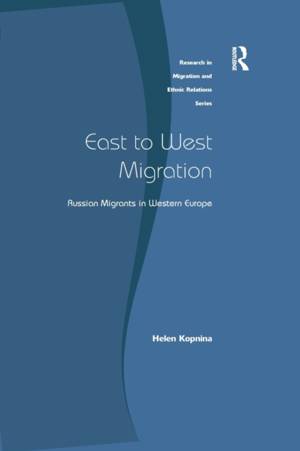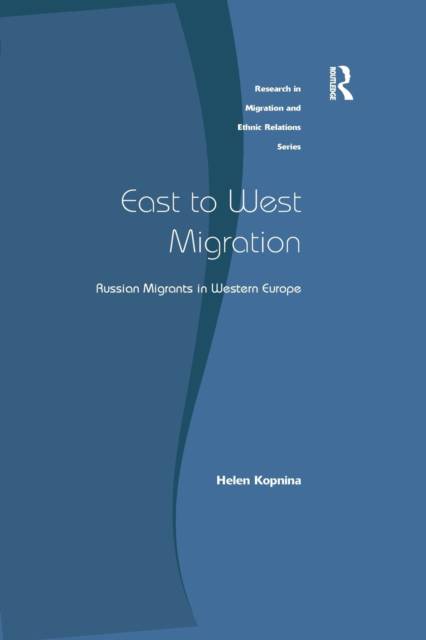
Door een staking bij bpost kan je online bestelling op dit moment iets langer onderweg zijn dan voorzien. Dringend iets nodig? Onze winkels ontvangen jou met open armen!
- Afhalen na 1 uur in een winkel met voorraad
- Gratis thuislevering in België vanaf € 30
- Ruim aanbod met 7 miljoen producten
Door een staking bij bpost kan je online bestelling op dit moment iets langer onderweg zijn dan voorzien. Dringend iets nodig? Onze winkels ontvangen jou met open armen!
- Afhalen na 1 uur in een winkel met voorraad
- Gratis thuislevering in België vanaf € 30
- Ruim aanbod met 7 miljoen producten
Zoeken
€ 83,95
+ 167 punten
Uitvoering
Omschrijving
The collapse of the communist regimes in Eastern Europe brought widespread fear of a 'tidal wave' of immigrants from the East into Western Europe. Quite apart from the social and political importance, East-West migration also poses a challenge to established theories of migration, as in most cases the migrant flow cannot be categorised as either refugee movement or a labour migration. Indeed much of the trans-border movement is not officially recognised, as many migrants are temporary, commuting, 'tourists' or illegal, and remain invisible to the authorities. This book focuses on Russian migration into Western Europe following the break-up of the Soviet Union. Helen Kopnina explores the concept of 'community' through an examination of the lives of Russian migrants in two major European cities, London and Amsterdam. In both cases Kopnina finds an 'invisible community', inadequately defined in existing literature. Arguing that Russian migrants are highly diverse, both socially and in terms of their views and adaptation strategies, Kopnina uncovers a community divided by mutual antagonisms, prompting many to reject the idea of belonging to a community at all. Based on extensive interviews, this fascinating and unique ethnographic account of the 'new migration' challenges the underlying assumptions of traditional migration studies and post-modern theories. It provides a powerful critique for the study of new migrant groups in Western Europe and the wider process of European identity formation.
Specificaties
Betrokkenen
- Auteur(s):
- Uitgeverij:
Inhoud
- Aantal bladzijden:
- 252
- Taal:
- Engels
- Reeks:
Eigenschappen
- Productcode (EAN):
- 9780367604264
- Verschijningsdatum:
- 30/06/2020
- Uitvoering:
- Paperback
- Formaat:
- Trade paperback (VS)
- Afmetingen:
- 156 mm x 234 mm
- Gewicht:
- 358 g

Alleen bij Standaard Boekhandel
+ 167 punten op je klantenkaart van Standaard Boekhandel
Beoordelingen
We publiceren alleen reviews die voldoen aan de voorwaarden voor reviews. Bekijk onze voorwaarden voor reviews.











